|
October 19th, 1912
The book is finally out. Now what will the "critics" --- the intellectual Mrs. Grundy say?
First bourgeois paper:
A book of mixed quality; mostly the ravings of an immature and partly distorted mind...It would be too much to expect that prisons should be considered a desirable place by the social undesirables. It is not intended they should, of course, no informed man needs to be told that abuses take place in prison as well as out of it. But the exaggerations of the Anarchist writer
|
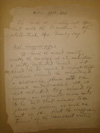
|
|
- 2 -
|
|
|
[are] very far from the truth... [kee]pers and gaolers are but human, and may occasionally be guilty of abuse of power. It is only an awakened public consciousness that can progressively and successfully cope with such abuses, whether they be perpetrated in congress, in our courts of justice, or in the penitentiaries.
Second bourgeois paper:
A book by a degenerate who did not find prison to his taste. An indecent book, that is both a glorification of assassination
|
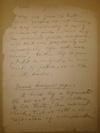
|
|
- 3 -
|
|
|
and an apology, even justification, of unmentionable crimes. Mr. Comstock had better look into this work.
Third bourgeois paper:
A peculiar work, very uneven both as to merit and worth. It contains much that is good and valuable, but still more of matter that is either pure fabrication or the fancy of a perverse mind.
Fourth bourgeois paper:
An unwholesome book,
|
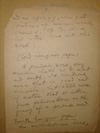
|
|
- 4 -
|
|
|
most of which had better been left unsaid.
Fifth bourgeois paper:
An attempt to be literary at the expense of truth.
The young radical woman:
Simply lovely; just wonderful, wonderful.
The young radical man:
Very intense and absorbing.
The old-time Comrade:
A very fine work.
|
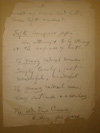
|
|
- 5 -
|
|
|
but indicating a decline of the author's revolutionary spirit.
2 Modern American Radicals of Anarchist Tendency:
A (the vague radical)
A great book; very wonderful.
B (the more definite type)
Very good, but it lacks figures and facts to make it stick.
Comrade-Friends:
A --- The beginning, that is
|
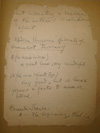
|
|
- 6 -
|
|
|
the first part of the book, is unconvincing and incomplete.
B. --- The last part, the Resurrection, is incomplete
C. --- The book has neither beginning nor end.
D --- Is the Tunnel incident a reality or a dream?
E --- It has affected me more than Dostoyevsky's Memoirs of a Dead House
F. --- The author pictures him-
|
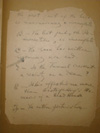
|
|
- 7 -
|
|
|
self an angel.
G. --- The author has succeeded in being ojbective.
H --- A thankless task well done.
I --- There should have been more of the movement and less of the author. More revolution and less art.
J --- [A Socialist} The work shows the futility of violence, the impracticality of the Anarchist mind and attitude.
|
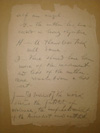
|
|
- 8 -
|
|
|
K --- Prison convinced the author of his folly
L --- Prison strengthened the author in his Anarchist views.
M --- Prisons are powerless to break a real revolutionist
N --- (enemy) On the whole, though the book is in spots very good, it is a disappointment
O --- (friend) A gread document and valuable contribution to our anarchist literature
|
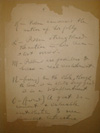
|